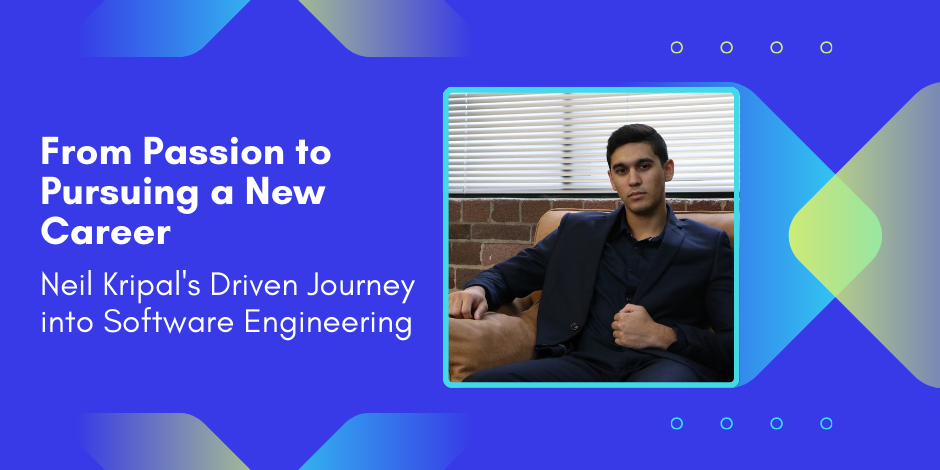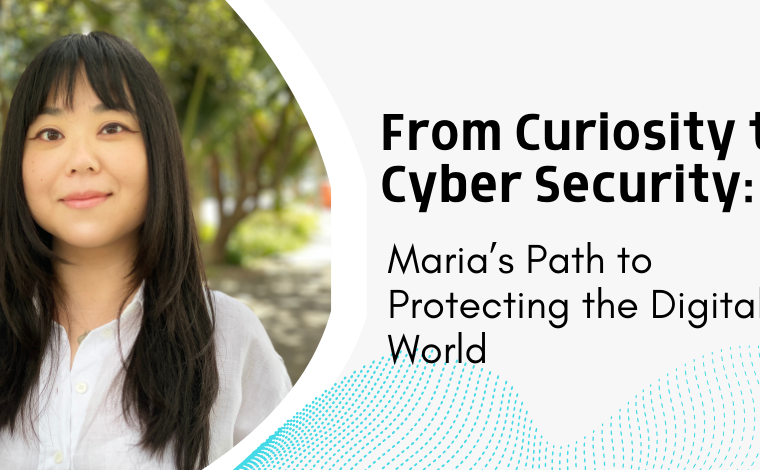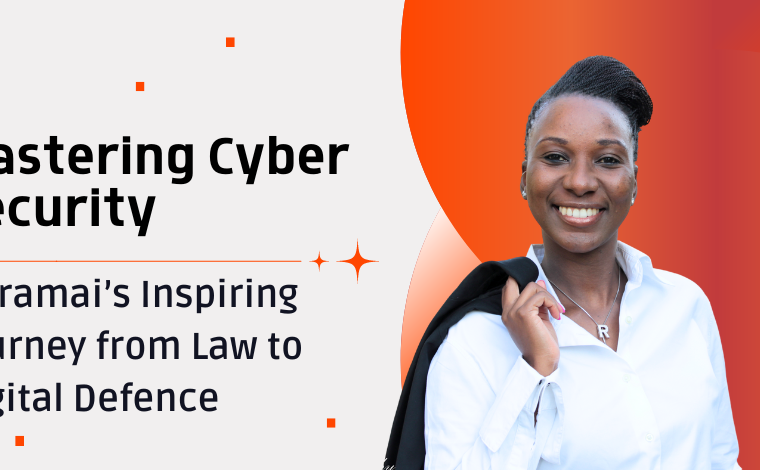From Passion to Pursuing a New Career: Neil Kripal’s Driven Journey into Software Engineering

Stay Informed With Our Weekly Newsletter
Receive crucial updates on the ever-evolving landscape of technology and innovation.
Neil’s journey into the world of software engineering is a testament to the power of passion, the art of problem-solving, and the relentless pursuit of growth.
With a lifelong love for tech sparked in his early years, Neil aspired to work in a field where his skills and interests aligned.
He decided to transition from a diverse background in sales, real estate, and consulting to a career path that provided more meaning, challenge, and potential to his career prospects.
Neil decided to enrol in the Institute of Data’s Software Engineering Program, which gave him the practical skills and industry-recognised credentials needed to fast-track his career in this new direction.
Learn how the Software Engineering Program helped Neil land his current role as a Technical Support Engineer and his advice for others considering a career in this ever-evolving industry.
1. Neil, please tell me a bit about yourself. What are your interests outside of work?
I have many different interests, including going to the gym and boxing. I’ve participated in sports all my life. I’m at work six days a week, though, so I enjoy the challenge and balance exercise brings.
Being at the gym is my ‘me time,’ I use to to reflect on my day and the path I want to pursue.
For me, sports is a good way to take time away from work and life and reflect on my areas for improvement.
2. Have you always been interested in technology?
I’ve always had a love of technology and a passion for problem-solving and making life easier through tech.
When I was growing up, my dad and I always talked about tech and made improvements around the house. We liked automating things. So my interest in tech grew from there.
Tech is such a vast domain. There’s always something new and it provides endless opportunities to learn and grow.
3. What drew you towards software engineering?
For the majority of my schooling years, I was tech-focused and into game design and coding databases.
I didn’t find tech overly difficult to understand, and after a while, I realised perhaps I had a knack for it.
My first job out of school was selling computers in a retail shop. It was there that I realised I had a good base knowledge, so the role was an easy fit for me. Plus, I was good at talking to customers.
Although I found I was pretty good at breaking things down for customers, I’d reached a point in my sales career where I couldn’t see any real progression.
I was actually studying IT (information technology), but I felt I wasn’t progressing at a pace I was content with. Plus, I wanted to develop my skills and abilities and move on to something more meaningful.
Software engineering made sense to me. I wanted to focus on something I was passionate about.
[su_quote]I could see the software engineering space really developing and evolving, especially with the onset and development of artificial intelligence.[/su_quote]I knew that there would be increasing demand for software developers.
I want a job that could do remotely because travelling is important to me. I want to travel and explore the world, and having a job I can do from anywhere is essential.
4. Was there a particular reason that you chose to study with the Institute of Data?
I did a lot of research before I made that decision.
[su_quote]What gave me confidence, in the end, was the fact that the Institute of Data is partnered with the University of Technology Sydney (UTS)— it’s such a well-known university.[/su_quote]Gaining the certification from the Institute of Data adds a credibility factor when on the job hunt.
Being able to point to an organisation that is reputable within the industry is critical.
Also, I could see that completing the bootcamp would be a good punt as a way to fast-track the learning required.
5. Did you have any concerns about signing up for a bootcamp?
Not exactly. I know bootcamps are becoming more popular, and more people are choosing them as a time-efficient learning path.
A certification fast-tracked both the educational aspect and the practical skills I needed, giving my resume the necessary credentials and me the confidence when applying for jobs.
I think a lot of companies are seeking experienced people backed by solid education.
6. What were some of the program’s highlights?
The capstone projects were excellent in encouraging a development mindset and fostering creativity.
[su_quote]They gave us the opportunity to apply the knowledge and experience gained during the program, resulting in tangible, presentable work we could be proud of.[/su_quote]They really showcased the power of our acquired knowledge and the potential of the applications we built.
I found the projects challenging but enjoyable. They brought out my problem-solving skills as I worked to find optimal solutions and tackle issues step by step.
The process of overcoming obstacles and seeing the final results was both rewarding and fun.
7. There are always setbacks and challenges when learning something new. What challenges did you face, and how did you overcome them?
Everyone faces challenges when learning new material. It’s natural not to grasp everything immediately.
The key for me was to revise, research different articles and developer notes about specific methods, and explore the intricacies of how they’re used.
Taking my time and testing things out was crucial. As a more hands-on learner, I found that the more I experimented with the material, the better I connected the dots.
[su_quote]This practical approach helped me link my problems with the skills I had learned and the tests I had run.[/su_quote]By combining different examples and tests I had created, I could often find solutions to the problems at hand.
It’s all about how you approach new concepts. While it can sometimes be overwhelming, the key is to slow down and put things into a perspective that makes sense to you.
Learning becomes easier for me to digest and remember when I can correlate new information with what I already understand.
This approach of breaking things down into relatable, understandable chunks can make the learning process more manageable and effective.
8. Do you have any advice for people going through a bootcamp?
Success in learning comes down to asking questions whenever possible. Some people might hesitate to ask, fearing they’ll slow down the class or not receive a satisfactory answer.
However, I found that the key is actively applying what we learn in labs or training sessions.
Practical application is crucial because while you can be taught something, you don’t truly understand it until you use it.
Working with the material helped me grasp how the process works, how different elements fit together, and why certain things affect others. This hands-on experience is what makes the main difference in comprehension.
The training structure of the programs was quite effective.
It often involved step-by-step instructions that we all followed simultaneously. The program also provided examples for us to work through independently, encouraging us to find answers independently.
Ultimately, it came down to practice.
The more I used different methodologies, the better I was able to apply them.
Consistently applying what I learned was the most effective way to improve my skills and understanding.
9. What was the job-hunting process like for you??
The job search was intensive and essentially a full-time job in itself.
I applied religiously day after day. After a while, I began to question whether I was doing something wrong or if I hadn’t done enough.
This led to a lot of self-reflection and review – the gym was great for this.
I revisited my resume multiple times and spoke with various industry professionals about potential roles and areas to focus on.
Persistence was key. It was crucial to be able to take criticism constructively and implement suggestions.
But ultimately, it’s a day-by-day process—the more effort you put in, the more you get out.
The interview process for my current position was rigorous, involving about seven stages.
However, it was beneficial as I met the entire team I’d be working with.
This provided different perspectives and stories about the company.
[su_quote]Everyone conveyed the same message about the company’s positive culture, flexibility, and commitment to employee development and upskilling.[/su_quote]This commitment to growth really stood out to me, as I wanted a company that would support my development and provide the necessary resources and skills.
10. How are you finding being in the software engineering industry?
Honestly, the job is everything I could have hoped for—the work is great, the people are fantastic, and the flexibility is amazing.
I only need to be in the office once a fortnight, with the rest being completely remote.
It’s exciting to think about the potential for growth, even though I’ve only been with the company for five months.
I’ve been one of the fastest to onboard, finishing the initial courses within a week and starting to handle tickets within the first month—a process that typically takes many more months. So, they have been really pleased with my progression.
Every day is a bit different, bringing a new set of challenges and problems to solve, which keeps the work interesting.
I’m constantly learning and expanding my skills. It’s exciting to have entered the tech industry and to be exploring where this career can take me.
11. What does the future hold for you?
My career goal is to become a team lead. I’m grateful for the communication and interpersonal skills I developed during my time in sales, as they’re proving invaluable in tech.
[su_quote]In this industry, it’s crucial to have both extensive technical knowledge and the ability to communicate complex ideas clearly and effectively.[/su_quote]Being an exceptional coder isn’t enough if you can’t explain your work to clients or colleagues.
The tech sector is growing in need of professionals with strong soft skills, particularly in communication.
I believe these abilities, combined with technical expertise, are what distinguish truly effective leaders and team members.
12. Do you believe those soft skills you learned while working in sales and retail have a part to play in your new role?
I think my adaptability and constant drive for improvement have been key to my success.
I’m always looking for areas to improve, whether it’s tackling an issue differently, restructuring my day, or managing time more efficiently.
Reflection is a useful tool. It’s invaluable to take a few minutes each day, especially at the end of the day, to consider what you could have done better and what you did well.
13. What advice would you give to those thinking about going into software engineering?
First of all, you need the ability to persevere. You might need to do some self-reflection and determine what you actually enjoy and what you see yourself doing long-term.
I think having a growth mindset and being adaptive is important, as is being open to constructive criticism and suggestions from other people.
Software engineering is an exciting arena with unlimited opportunities. If you have the drive and the passion, it’s an industry you can really thrive.
Conclusion
If you’d like to learn more about our Institute of Data’s Software Engineering Program, please download a course outline.
Alternatively, you can speak about the program directly with a team member by booking a career consultation to start your journey with an actionable plan.
You can connect with Neil and follow his professional journey on LinkedIn.




